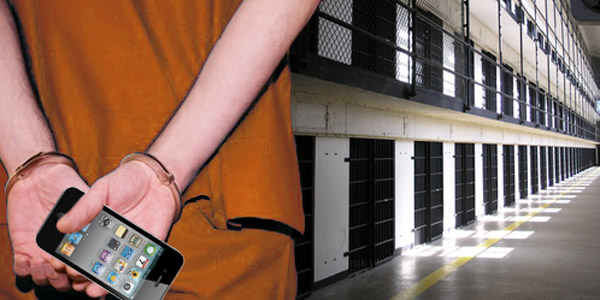Cell Phones Should be Allowed in Prisons

CON (5 arguments)
Define:
Cell Phones - A portable telephone that uses wireless cellular technology to send and receive phone signals. - American Heritage New World Dictionary
Prison - an institution (as one under state jurisdiction) for confinement of persons convicted of serious crimes
The purpose of low and medium security level prison facilities is to rehabilitate the inmates, not make their remaining lives miserable. The goal of using cell phones in prison is to have the inmates call their families, so that they have a connection with their families. The more communication and support from loved ones the more likely the inmate will succeed. The longer an inmate is incarcerated, the more likely support will be lost and success will not be found upon release. Offering continuous communication with loved ones will strengthen the bond that will lead to their success. It will help the inmate realize day to day the reason they must succeed as an inmate and then as a member of society.
According to a study conducted by Texas Department of Justice, 85% of inmates who used cell phones to call families (calls were recorded because of ITT Hounds Cells) displayed good behavior and were released early. This shows that cell phones rehabilitate the inmates and makes them realize living with their families on the good side of the law is a better alternative than their other, darker choices.
In Georgia, one inmate called his son everyday to keep in touch. Whenever the son went on a school bus, or just finished school, the father would always be checking on him. This case clearly demonstrates that the widely held stereotype that criminals would use their cellphones to conduct illegal behavior is obviously not necessarily true.
Numerous examples prove this. A death row inmate used a cell phone to threaten a Texas senator. In Nevada, prison officials fired a dental assistant for helping an inmate get a cell phone to plan an almost successful escape. In New York, an inmate used a cell phone to orchestrate an attempted escape while on a medical transfer. Prisoners have also used cell phones to harass and threaten their victims. In Texas, courts have convicted more than a dozen corrections officers in recent years for accepting bribes in exchange for cell phones or phone parts. (FBI analysis report)
Cell phones represent the latest concern in authorities’ constant struggle against prison and jail contraband. Inmates smuggle them into facilities in increasing numbers. For example, in 2008, California officials alone confiscated approximately 2,800 devices. During a massive search in a Texas institution, authorities recovered approximately 300 wireless phones, including 18 from death row inmates. (California Department of Justice, Texas Department of Justice
Prisoners have used them to, for example, intimidate and threaten witnesses; transmit photographs, including offensive pictures sent to victims; orchestrate crimes, such as gang activity; coordinate escapes; bribe prison officers; order retaliation against other inmates; text other prisoners; gain access to the Internet; and create security breaches. Out of 2800 cell phones confiscated, 30% were used to threaten witnesses; 25% were used to orchestrate crime and to coordinate escape; 25% were used to text other inmates; 20% were used to access the Internet for unknown purposes… and a mere 10% of calls were made to contact family members or friends. (Warden’s Advisory Group on Cell Phone Interdiction)
The main reason that the proposition thinks that cell phones are such a big problem, indeed, a main assumption that their case stands on is that the reason cell phones are being smuggled is due to the convenience. However, this is not true, as statistics prove (look above), only a very small percentage of people do things that legalized cell phones will require. A vast majority of people use them for illegal things. And therefore, legalized cell phones won’t solve the problem of contraband cell phones.
Right now, all cell phones are illegal in prisons. This means that if a cell phone is found, it is immediately known to be an illegal object. However, if the government passes out legal cell phones, the enforcement officers won’t have such an easy time.
In Texas, a similar system was implemented where cell phones were permitted, provided that when the criminal was searched, the cell phone would have a chip integrated into it - unknown to the prisoner. While this plan seemed successful at first, the amount of cell phones captured dropped drastically. Although these seemed to be attributed to the successful plan, a March report on the system revealed that contraband cell phone numbers INCREASED by 10% due to the lowered capture rates,, and the system was already revealed by prison guards.
(Texan News Network, 2012)
The whole plan cost over $2 million in just one plant.
And as our above assertion proves, contraband cell phones won’t be solved whatsoever. So essentially you are just going to lessen the rate of capture and increase the amount of contraband cell phones in prison
According to Britannica online, there are four main purposes of having a prison: retribution, incapacitation, deterrence and rehabilitation. Retribution - pay back for the crimes; incapacitation - removal from society ; deterrence - prevention of future acts ; rehabilitation - reintegration into society.
Cell phones don’t further any 4 of these.
"It makes the very concept of the prison obsolete. It allows the person in custody to transcend the walls of the prison," said Martin Horn, the Former New York City Correction Commissioner.
Not only do cell phones undermine incapacitation, allowing them to talk to whoever they want, access Internet from wherever, and still get prison benefits, such as free food, essentially renders retribution useless; they just get free lodgings and still have luxuries. This offers an incentive for poor people to go to prison. This defeats the purpose of having a prison.